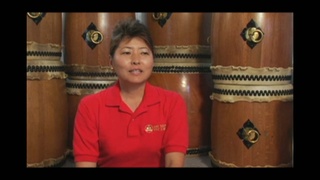Interviews
Role of Assistancia Social dom Jose Gaspar (Japanese)
(Japanese) When the Social Assistance Organization began—when my job began—there were four members who gained their licenses: Mr. Chibata Miyakoshi, general manager; Mr. Keizo Ishihara, owner of Tokiwa Hotel; Mr. Masaru Takahashi, accountant; and myself. The church did not allow for more employees. So we started, just like that. And on June 3rd, I was finally issued an official licença (license) as a doctor, and we officially began. The next morning—the morning after we got the licença—there was a police officer waiting at our porta (front door) at 8 in the morning. He shadowed me for three days, to make sure that I was really running a charitable enterprise, and then left smiling, three days later. So work started to pick up, and people with tuberculosis, insanity, orphans, homeless people… they would all come, looking for help. Sometimes we didn’t know how to help them, and decided to give them money for rent or food. But many of the wives, whose husbands were in pres (prison), would take the money and use it to bicho (gamble), which was a popular thing to do at the time. They would use it to bicho, but they’d still want to go to the market, so they would run out of money to shop. We realized this was no good, so we went to three local stores: Pinheiros, where they sold food, and at the corner of Conde and also at Vila Mariana, and started a ticket program (food stamps). A coupon system, you know? They would come to me, and I would give them a month’s worth [of coupons] per family. So they would take that, and get food and supplies from each store. We made it so that we never let them handle cash—we bought medicine for them, paid the rent for them… that’s the way we took care of them during the war. I would go and pay at the end of each month, pay the contas (accounts)… yes, that’s the way we did it during the war.
Date:
Location: Brazil
Contributed by: Caminho da memória - 遥かなるみちのり. São Paulo, Brazil: Comissão de Elaboração da História dos 80 Anos de Imigração Japonesa no Brasil, 1998. VHS.







